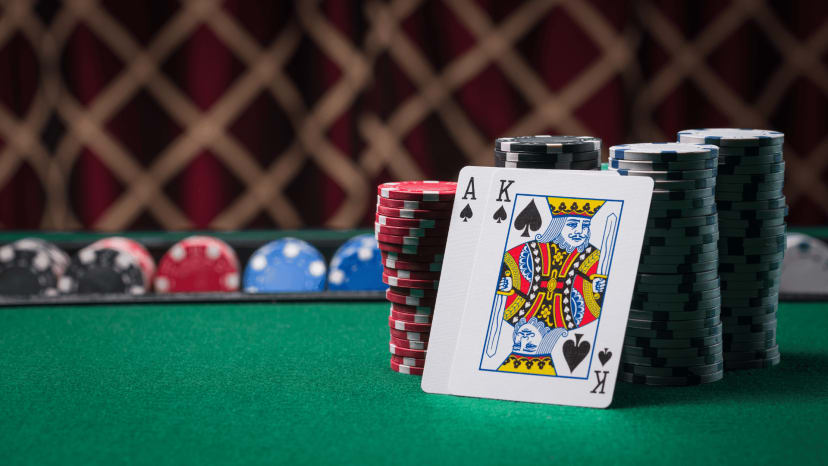Poker Life Lessons Applicable in Real Life Situations

Life is often a game of risks. One must assess situations, make informed decisions, and maintain consistency to cut it. In fact, nobody will teach you all these things, as it’s all about learning from mistakes. But if you like playing offline or online poker, there are many poker life lessons to apply. So, to cut it short, here are some essential life skills to derive from playing poker for Rwandan players.
Lesson #1. Patience Pays Off
One thing is sure: most casino players are afraid of playing online casino poker. Instead, they are attracted to those deceptively shiny slot machines and roulette wheels. Beginners claim that poker is too challenging to master compared to luck games, where players just hit “spin” and wait for the outcome.
In their defense, though, a specific set of skills is necessary to cut it in the tricky poker world. This is true whether playing at brick-and-mortar casinos or top online casinos. But if you’re patient enough to nurture your skills, you’ll start winning more poker hands than spins at a slot machine. Note that it takes lots of time and practice to be a master poker player. The life lesson? Patience and dedication are essential in life.
Lesson #2. Discipline & Focus for Rwandan Players
Unlike games of luck, poker players must be disciplined on the table and only focus on the action. Players must ensure that they play every hand optimally and keep track of every card when it is dealt. And because you have zero control over how the cards are issued, don’t waste mental energy over it.
The same applies to real-life situations. Life will deal you multiple challenges that you often can’t control. So, instead of playing blame games, focus on finding a way to wriggle out of the situation. For example, don’t sit around crying after losing your job. Get up and find another!
Lesson #3. Make Bold Decisions
You’ve probably come across those passive poker players who are afraid of making risky decisions. While it sometimes works, such players end up losing more than they win. Sure, their losses are not that big. But in the end, their bankroll will take a beating.
In addition, bold poker players will typically trigger the $100K pot, which conservative players cannot. The life lesson here is that people who don’t take calculated and bold risks lose. Remember the saying that fortune favors the brave?
Lesson #4. Bluffing Works, But Not Always
Bluffing is a common term when playing poker at casinos. It means camouflaging a weak hand to look strong and vice-versa. In return, other players on the table can feel intimidated by your moves and fold. But it doesn’t always work when playing against seasoned pros who can easily read your actions.
The same applies in life. Although some fake it till they make it, this will only harm them in the long run. You can go on impressing the whole world with a flamboyant lifestyle, but you’re suffering in silence. So, don’t display a fake character just for public relations. Your mum or partner will likely know you’re faking it!

Lesson #5. How Rwandan Players Can Master Bankroll Management
First, this point cuts across all gambling activities, including sports betting. In online poker, things often go south, and players lose a lot of funds. So, to effectively absorb the shocks of losing, creating a gambling budget is paramount. Divide it into smaller daily, weekly, or even monthly gambling units.
Similarly, life is all about managing finances. It’s possible to get carried away during a payday and blow half your pay on impulse buying. Therefore, budget your funds and only purchase what you need. Don’t buy a sleek Ferrari with all your life savings when you know that hospital insurance and other bills haven’t been settled.
Lesson #6. How Rwandan Players Can Calculate Risk Effectively
Whether it’s in poker or in business, it’s important for Rwandan players to get good at calculating and managing risk.
Do you understand the trade-offs? Would you bet all your money on a bad hand? You shouldn’t – and you wouldn’t in business either. Both poker and business are unpredictable, which makes measuring potential gains and losses, factoring in every possibility, and reflecting on the types of risk involved key to making the right move – whether that has to do with a bluff, raise, or fold, or with marketing decisions, budgeting allocations or project plans.
Both at the poker table and in the boardroom, risk calculation involves performing some quick math, making assessments, and using your instinct.
Lesson #7. Reading People: A Key Skill for Rwandan Players
Reading people is crucial in negotiation, a skill that benefits you in business, poker, and life. When you play poker online or at a land-based casino in Rwanda, anticipating your opponents' moves, tells, and weaknesses is essential to staying ahead.
In business, whether dealing with colleagues, customers, or competitors, the ability to read people is undoubtedly a vital skill.
Understanding individuals and assessing situations clearly allows for meaningful engagement, effective communication, motivation, and the best possible response. This applies whether you're identifying an employee's potential, closing a deal with a client, or simply conversing with someone.
Lesson #8. Always Be Learning
Continuous learning is paramount in online casino poker. Even the most experienced players encounter challenging situations requiring quick thinking. For instance, a novice player, often called a "fish," can sometimes outsmart seasoned pros, leaving them surprised.
Life, much like poker, is full of unexpected turns, sometimes from the most unlikely sources. However, you should always remember that solutions are rarely far away. It's common for a teacher to learn valuable lessons from their student. Therefore, always remain attentive and listen carefully.
Conclusion for Rwandan Poker Players
Poker is certainly not an ordinary casino game. This is highlighted by John von Neumann, a renowned mathematician and computer scientist, who applied poker bluffing strategies in fields like politics, warfare, and psychology.
The great news is that you don't need a large budget or extensive resources to apply these poker life lessons. Make more calculated moves, observe others' behaviors, and always manage your budget wisely. Ultimately, poker offers more than just winning and losing.
FAQ
How Can Playing Poker Improve Your Decision-Making Skills?
Poker helps you make better decisions by teaching you to quickly size up situations. You learn to read what's happening, understand the chances, and decide even when you don't have all the facts. These skills are useful in everyday life, where you often need to make fast, smart choices at work or in your personal life.
What Poker Strategies Can Help You Manage Your Finances Better?
Poker teaches you to be careful with money and to think about risks. You learn to manage your funds, avoid making quick decisions without thinking, and understand the importance of smart investments. Using these ideas in your personal finances can help you with budgeting, saving, and making wise money choices, like knowing when to take a chance and when to be careful with your spending.
How Does Thinking About Risk and Reward in Poker Help in Real Life?
In poker, you often think about the risk compared to what you might gain from a decision. This idea is very useful in real life, especially when it comes to your career, investments, and even relationships. It teaches you to think about what might happen because of your actions and to make choices that balance the risk with the chance of a good outcome. This is important for making informed decisions in Rwanda.
Can Playing Poker Help You Control Your Emotions and Be More Resilient?
Poker players need to control their feelings to avoid "tilting," which means making bad decisions because they're upset or angry. This control is also important in real life, helping you stay calm when things get tough, think clearly when stressed, and recover from setbacks. Learning to be resilient and manage your emotions from poker can help you handle stress better and solve problems more effectively. Remember to gamble responsibly.














